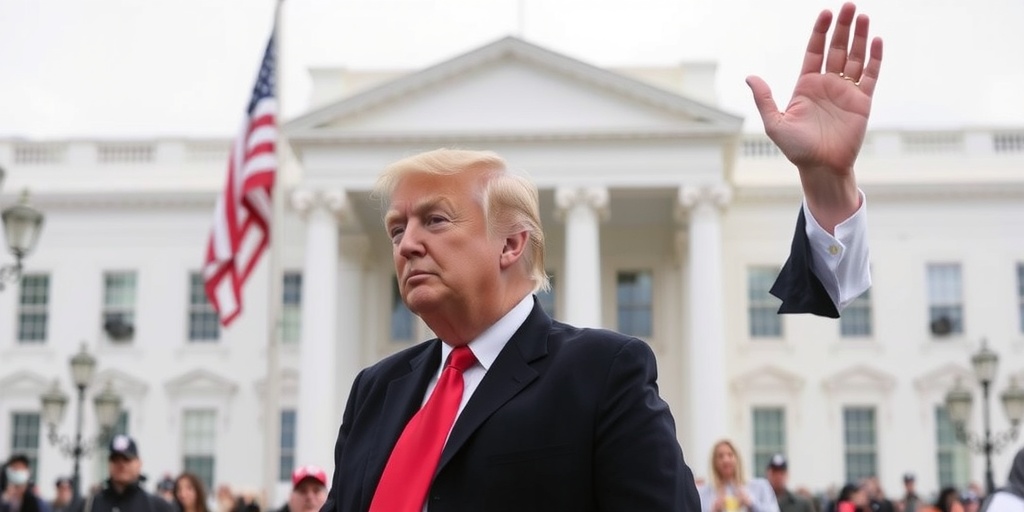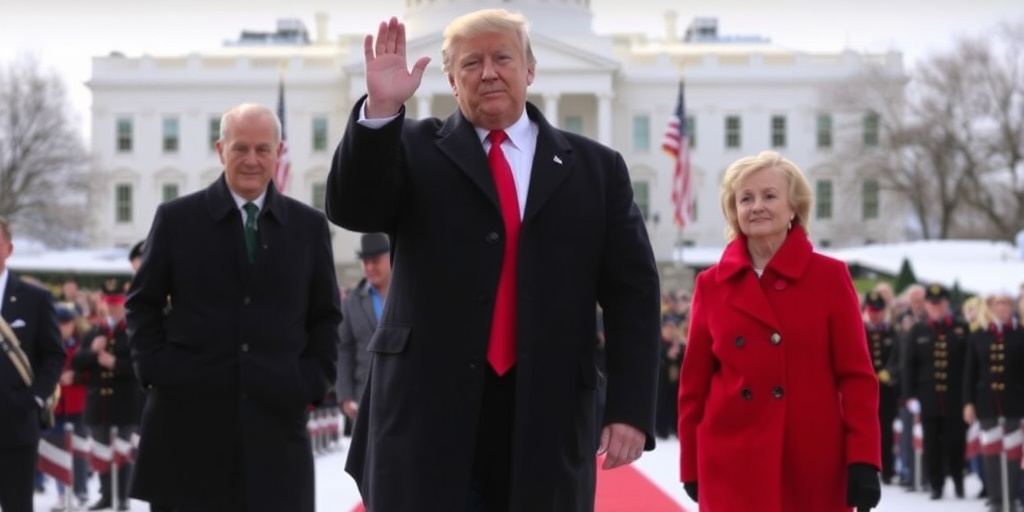Now Reading: Trump Advocates for Energy Expansion, Excluding Wind and Solar
-
01
Trump Advocates for Energy Expansion, Excluding Wind and Solar
Trump Advocates for Energy Expansion, Excluding Wind and Solar

Trump’s Energy Policy: A Push for Fossil Fuels Amid Legal and Environmental Concerns
In a bold move to reshape the United States’ energy landscape, former President Donald Trump has initiated a restructuring plan that aims to block any transition away from fossil fuels. The directives he signed recently have sparked significant controversy and may test the limits of presidential authority.
Trump’s latest orders are designed to facilitate cheaper and easier oil and gas production, while also providing federal agencies with mechanisms to halt previously approved clean energy projects. This marks a significant pivot from recent federal efforts to combat climate change and transition to renewable energy sources.
Several actions outlined in these orders have raised eyebrows among legal experts and environmental advocates. Notably, Trump has signaled intentions to reverse the Environmental Protection Agency’s (EPA) authority to regulate greenhouse gas emissions—an authority upheld by the Supreme Court. Additionally, he has called for a suspension of funding for electric vehicle charging stations that were previously authorized by Congress, prompting strong criticism from lawmakers such as Representative Frank Pallone, a New Jersey Democrat. Pallone remarked, "Congress passed landmark infrastructure and climate investments, and now President Trump is attempting to illegally withhold that money from American businesses, communities, and workers."
Interestingly, while Trump maintains that the United States is facing an energy emergency, his plans seem contradictory. He has sought to block the development of thousands of megawatts of planned wind projects that could help power homes and businesses. Trump’s rhetoric about strengthening American manufacturing does not appear to align with his actions, which threaten the electric vehicle sector—an industry that has heavily invested in new factories across the country.
Robert N. Stavins, a director at Harvard University’s Environmental Economics Program, criticized Trump’s approach, asserting, “The phrase ‘energy emergency’ is an excuse to stop the progress that has been made in producing solar and wind power, electric vehicles, batteries, and renewable power.” Analysts have pointed out that the U.S. does not currently face an energy emergency. As the world’s largest producer of oil and natural gas, the country’s oil price of approximately $76 per barrel remains consistent with historical averages, and gasoline prices have experienced only minor fluctuations in the past year.
Dr. Stavins further noted that, if a genuine energy emergency existed, the government should aim to increase the supply of all energy types while promoting energy conservation efforts, such as stricter efficiency standards for vehicles and household appliances. Instead, Trump’s initiatives appear to loosen energy standards, with plans that could lead to increased energy consumption and dependencies on fossil fuels.
The financial backing from the oil and gas industry for Trump’s presidential campaign underscores a significant relationship between politics and fossil fuel interests. The industry contributed around $75 million to his campaign, which he reciprocated by vowing to remove environmental regulations to benefit these companies. Trump reportedly urged oil and gas executives to invest in his campaign, suggesting that they would see substantial returns through lower taxes and increased profits.
Industry executives have expressed a sense of security with Trump’s administration, believing that the costs associated with their business operations will remain stable. However, there exists a worry among some that an uptick in drilling could lead to a surplus of oil that may subsequently diminish prices and profit margins. Many industry leaders are reluctant to see the rise of renewable energies like wind and solar power, fearing a resultant decrease in fossil fuel demand.
In contrast to the previous Biden administration, which prioritized climate action, Trump’s actions signify a radical departure from those initiatives. He exhibits a narrowed interpretation of energy resources, prioritizing fossil fuels while neglecting the burgeoning sectors of solar and wind energy. His executive orders define energy resources to include crude oil, natural gas, coal, and other traditional sources, glaringly omitting renewables such as solar panels and wind turbines.
Despite the push against renewable energies in the United States, global trends depict a different story. Renewable energy and electric vehicles are increasingly vital components of the global economy. In fact, last year marked a pivotal shift, as solar and wind energy surpassed coal in electricity production for the first time in the U.S. Moreover, electric vehicle sales are rapidly outpacing those of gasoline-powered vehicles, indicating a robust demand for clean energy solutions.
Experts in sustainability believe that while Trump’s policies may create short-term disruptions, they are unlikely to halt the larger trend toward renewable energy. Steven A. Cohen, director of Columbia University’s master’s degree program in Sustainability Management, stated, “The transition is already underway… lots and lots of movement in the direction of renewable energy.” This sentiment has been echoed by key stakeholders in the renewable energy sector who stress the importance of investment in clean technologies, asserting that delaying such investments jeopardizes the country’s energy future.
The impact of Trump’s directives could ultimately rely on the legal system, where many of his actions might face scrutiny and potential challenges in federal courts. Legal experts have indicated that litigation surrounding these executive orders is almost assured as they potentially violate established laws, particularly concerning environmental protections.
As the nation navigates these tumultuous energy policy shifts, the diverging paths—one promoting fossil fuels and the other advocating for renewable sources—highlight a broader national debate over the future of America’s energy independence and environmental stewardship.
Stay Informed With the Latest & Most Important News
Previous Post
Next Post
-
 01New technology breakthrough has everyone talking right now
01New technology breakthrough has everyone talking right now -
 02Unbelievable life hack everyone needs to try today
02Unbelievable life hack everyone needs to try today -
 03Fascinating discovery found buried deep beneath the ocean
03Fascinating discovery found buried deep beneath the ocean -
 04Man invents genius device that solves everyday problems
04Man invents genius device that solves everyday problems -
 05Shocking discovery that changes what we know forever
05Shocking discovery that changes what we know forever -
 06Internet goes wild over celebrity’s unexpected fashion choice
06Internet goes wild over celebrity’s unexpected fashion choice -
 07Rare animal sighting stuns scientists and wildlife lovers
07Rare animal sighting stuns scientists and wildlife lovers





















